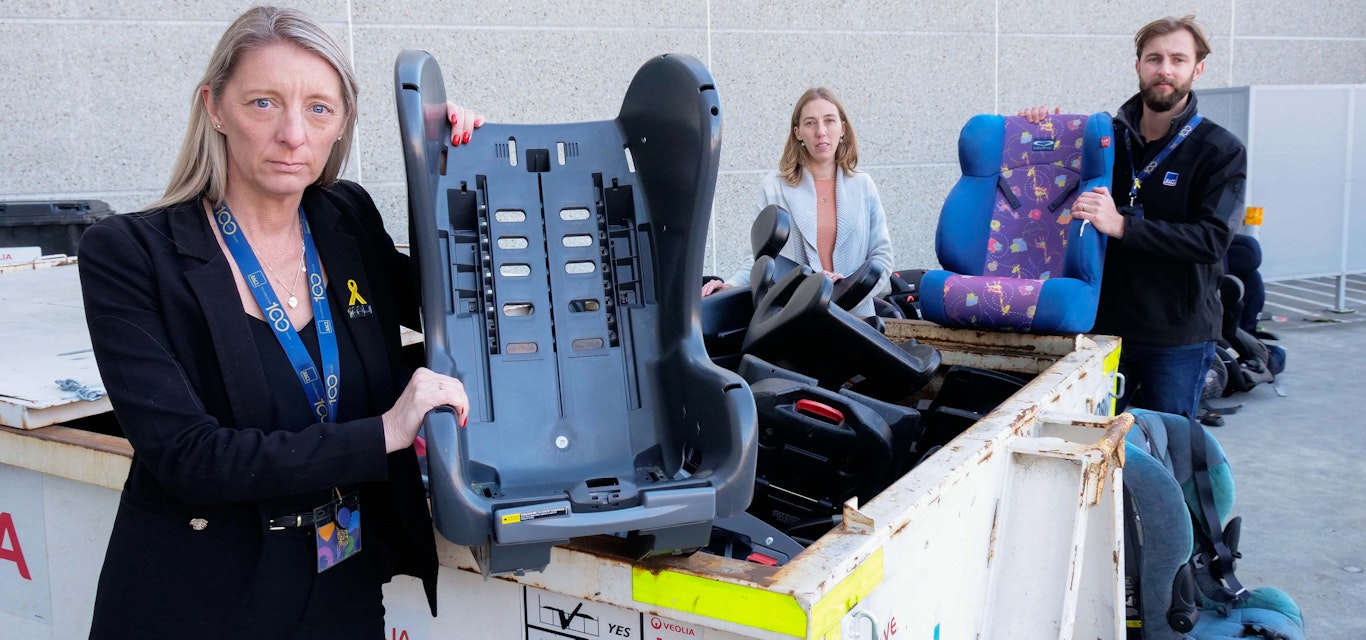Published | 16 May 2023
As part of National Road Safety Week, we're raising awareness about the critical importance of child restraint seats, not only in their selection and proper fitting but also in the safe disposal of expired or damaged seats.
With children being among the most vulnerable road users, we're committed to ensuring their safety through education and support.
According to our research, correctly fitted child car seats can reduce the risk of serious injury or death in the event of an accident by up to 70 per cent.
“The use of appropriate child car seats is a key factor in protecting our youngest passengers,” Chief Experience Officer, Stacey Pennicott said.
"It's crucial that parents and caregivers are educated on selecting the right car seat for their child's age and size, as well as ensuring it is properly installed."
In addition to proper installation, we're also stressing the importance of disposing of child car seats once they have passed their use-by date or have been damaged.
"Outdated or damaged child car seats may no longer provide the necessary level of protection, putting children at risk," Ms Pennicott said.
"We encourage everyone to regularly check the condition of their child restraint seats and dispose of them responsibly when they are no longer suitable for use."
Tassie Mums CEO Clair Harris said the children’s charity was excited to join forces with RACT to raise awareness of the importance of choosing the right seat and ensuring it’s properly fitted.
“We're proud to support RACT's efforts during National Road Safety Week and encourage all parents and caregivers to prioritise the safety of their children while travelling,” Ms Harris said.
“We frequently encounter uncertainty about how to properly fit child seats or a lack of awareness about the potential dangers of using second-hand seats. Tassie Mums and RACT ensure new parents have the knowledge and resources to make informed decisions that prioritise the safety of their children on the road,” Ms Harris said.
"RACT offers a range of resources to help families make informed decisions regarding child car seats, including our Child Safety hub, which provides expert advice and comprehensive information on selecting, fitting, and disposing of child car seats,” Ms Pennicott said.
"RACT is dedicated to promoting road safety for all Tasmanians, especially our children. By providing these resources and services, we aim to keep our youngest passengers safe and secure on our roads."
We're also encouraging responsible disposal of child restraint seats by recycling them whenever possible.
"Many child car seats can be recycled, and we urge everyone to check with their local council for appropriate recycling programs and facilities. By recycling these seats, we can contribute to a more sustainable environment while ensuring the safety of our youngest passengers on the road.”
We remains dedicated to promoting road safety and supporting the Tasmanian community. By encouraging everyone to participate in National Road Safety Week, share the message of road safety and work together to create a safer driving environment.
Check the following to know if your child seat is safe:
That it has an Australian Standard AS/NZS 1754 sticker.
That it's not older than 10 years by checking the year of manufacture sticker, or by looking at the dials embossed within the plastic shell.
Inspect for wear and tear, frayed straps, and ensure the buckle clicks into place securely.
If your seat has been in a crash, the damage may not be obvious. If you're aware that it has, don't use it.
Check that the shoulder harness correctly fits your child. The harness should sit directly on top or slightly above your child’s shoulders.
